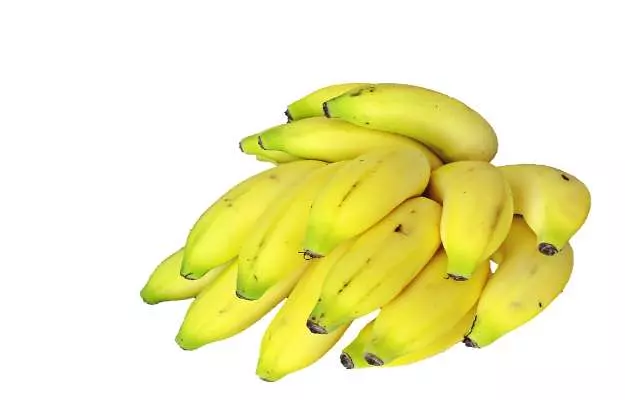A lot of rhymes and interesting stories for children are made on bananas. This tasty and nutritious fruit grows on the herbaceous banana plant. The word banana has been derived from the Arabic word ‘banan’, which means fingertips. There are various regions where bananas are grown worldwide but mainly these can be found in the tropical regions. Mostly banana plants are grown for its fruits; botanically these are a type of berry. Some are also grown for ornamental purpose or for their fibres, which are very strong. There are about 110 various species of banana. Popularly, as per our culture and commerce, "banana" is usually referred to as the soft and sweet kind. Hence, they also called dessert bananas. Other kinds or cultivars of this fruit have a firmer and starchier fruit. Those are usually known as plantains. Plantains are mostly used for cooking dishes or for their fibre.
Soaps are being made using the ash of bananas. In Asia, plants that grow in shade are provided with it by using banana plants. These include cocoa, coffee, black pepper, and nutmeg. Because of this reason, banana plants can also be found in plantations along with other crops.
The banana plant is counted as the largest herbaceous flowering plant. Thus, banana plants are often mistaken for being trees. Unripe bananas are always green in colour, which is different from the ripen ones, which turn yellow or reddish in colour. The fashion of growth for the banana leaves is spiral, and it may grow 2.65 metres long and 60 cm wide. Able to be easily torn by the wind provides them with a frayed look.
More than 170 countries across the globe are growing bananas because of its nutritional benefits. Bananas play a significant role in increasing the economy of developing countries. It is considered a superfood because of its numerous health benefits. It is high in vitamin B6, low in calories and fat and very easy to digest. It is considered a holistic food because it contains fibre, vitamin C, potassium and magnesium. Bananas have a peculiar shape like that of an arc which makes its appearance very appealing. They are the favourite of monkeys too!
Basic Facts about Banana
- Botanical name: Musa acuminate
- Family: Musaceae
- Genus: Musa
- Common Name: Banana
- Sanskrit name: "Kadalī"
- Parts used: Skin, pulp, fruits and stem.
- Distribution of banana growing areas: Bananas, like other tropical fruits, are grown in Africa, Latin America, the Pacific, and the Caribbean. Banana is the staple food for many developing countries. Only 15 to 20% of all bananas are exported to the global market for commercial use.
- Interesting facts about banana: The scientific name for the banana that was used earlier, is Musa sapientum, it means “fruit of the wise men”. Bananas tend to float in water as apples and watermelons do. The only place in the U.S. is Hawaii where bananas are grown commercially, although they were also once grown in Southern California and Florida.
























